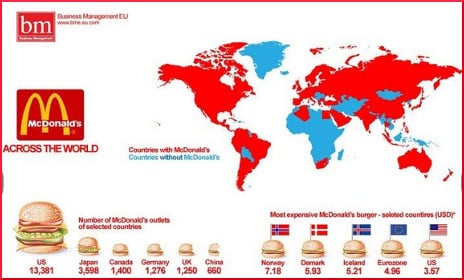
A report published in Proceedings of the National Academy of Sciences gave the disturbing news that obesity rates continue to link up with income inequality. A Harvard research team found that obesity is decreasing in teenagers from well-educated (and consequently better-employed) families, while it increases among the economically disadvantaged. When the numbers in some subgroups go up while others go down, the overall statistical picture can look like a plateau.
Such misapprehensions can inspire misleading media headlines and a false sense of victory. Journalist Lauren F. Friedman explains the mystery that is involved in trying to figure out why obesity rates are different. The kids whose parents only had a high-school education — in other words the poorer kids, who were getting fat — actually consumed fewer calories than the progeny of college-educated parents, who by any logical calculation, should be getting fatter. And get this. Friedman says, “But both groups were eating fewer calories per day in 2009-2010 than they were twenty years earlier.”
It doesn’t seem to make sense, and this is one of many reasons why more research is needed. It may be that exercise is the deciding factor. Rich kids get pretty much the same amount of exercise as in past years, but poor kids are getting less exercise than they used to.
Theories have been put forth. It costs money to participate in school sports, so maybe lower-income kids are missing out on exercise opportunities for that reason. Schools in poor neighborhoods might not even have sports programs because of budget cuts. Inner-city playgrounds and parks where kids used to go for exercise may be unsafe these days.
Friedman quotes study author Kaisa Snellman on the danger of making unwarranted statistical inferences: “There’s a danger in aggregating trends in groups that are so different. The picture becomes very murky.”
For a Think Progress piece about the same research, Sy Mukherjee looked up a separate and previous study carried out at the University of Georgia in 2013, which might explain the higher obesity rates among teenagers from financially burdened families. He writes:
Lead study author Gene Brody found that poor young teenagers who do well in school, are in good mental health, and are socially well-adjusted actually end up with an excess of stress hormones because of the strains of overcoming economic adversity. Consequently, these teenagers are more susceptible to obesity, hypertension, stroke, and cardiovascular diseases from a younger age.
What a terrible paradox, that the kids best equipped and motivated for success are setting themselves up for ravaging medical conditions, just by being so responsible and hard-working. Mukherjee also mentions that this is a worldwide trend among nations, as well as people. In affluent countries, obesity rates may fall. But at the same time, there is more obesity than ever in “developing” countries.
Your responses and feedback are welcome!
Source: “America’s Obesity Crisis Is Ending — As Long As You’re Not Poor,” BusinessInsider.com, 01/15/14
Source: “Obesity Rates Falling Among Affluent/Well-Educated But Rising Among The Poor,” ThinkProgress.org, 01/14/14
Image by Maps that will blow your mind

 FAQs and Media Requests:
FAQs and Media Requests: 











